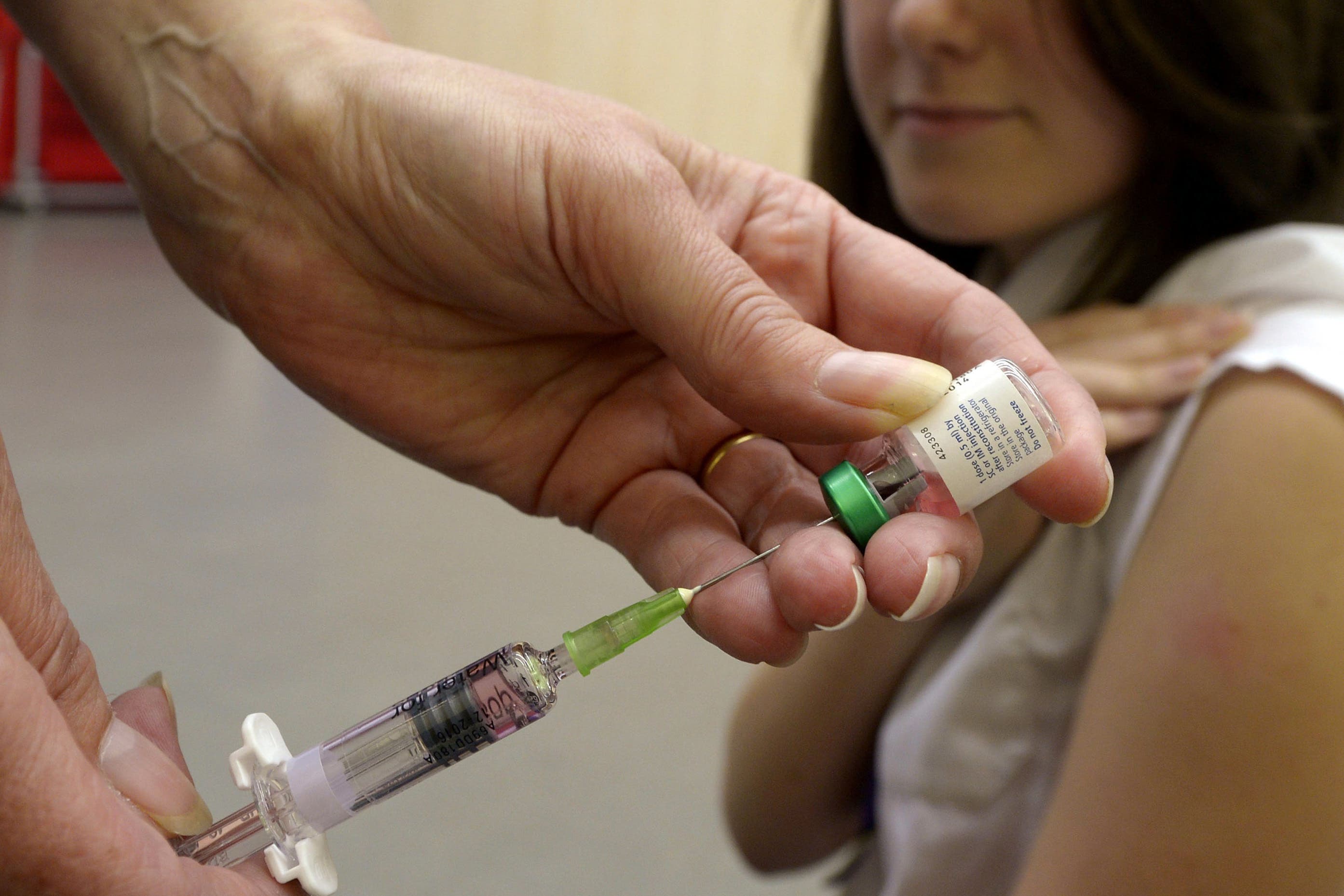New campaign launched to boost childhood vaccination uptake
Experts said vaccines had become a ‘victim of their own success’.

Children are “suffering needlessly” as a result of a decline in parents taking up the offer for routine childhood vaccines, health experts have said.
Officials said that there are “very real current consequences” linked to a dip in vaccination rates – including baby deaths.
The UK Health Security Agency (UKHSA) is launching a new campaign to try and boost the number of parents getting their children vaccinated amid low uptake.
The new campaign features children asking parents whether their vaccines are up to date.
“If we’re not vaccinated, we’re not protected,” the children in the video say. “We could get seriously ill, risking life-long disabilities.”
Experts said that children’s voices “resonated” with parents.
The routine childhood immunisation programme in England offers protection against 13 diseases including measles, polio, diphtheria, mumps, whooping cough, rubella and meningococcal infections – which can lead to meningitis.
But Dr Vanessa Saliba, consultant epidemiologist at the UKHSA, said there had been a decline in vaccine uptake over the last decade which had been “exacerbated” since the Covid-19 pandemic.
We think most of the problem relates to complacency and (parents) are very busy and not getting around to it. Plus the schedule now (requires) quite a (few) more visits
“We’re not hitting the World Health Organisation targets of 95% uptake for these vaccinations and this is important because if we don’t hit those targets, we don’t have those immunity levels in the population, we will see cases and outbreaks occurring and children becoming unwell, hospitalised and suffering needlessly because these are all preventable infections,” she said.
Professor Dame Jenny Harries, chief executive of the UKHSA, told BBC Breakfast: “There are deaths now – so if we talk about whooping cough for example, pertussis, we can’t protect very tiny babies.
“We have a pertussis – whooping cough – vaccination for children, usually at eight, 12 and 16 weeks, but the very tiniest children, the newborns, are the ones who are most impacted and can get very seriously ill, so we need most children to be protected so that they can’t pass it on to their young siblings.
“There’s also a maternal programme and that maternal programme rate has dropped as well – it was introduced in 2012.
“We’ve had 21 neonatal/infant deaths since that time, the last one of which was just at the end of last year. Now most of those individuals, 19 of the 21, were not vaccinated.
“So I think it’s all of the vaccination programmes are there to help people and there are very real current consequences.”
Asked why vaccine uptake had declined, Dr Mary Ramsay, head of immunisation at the UKHSA, said that while there were some people who were “resistant” to vaccination, UKHSA research suggested that attitudes towards vaccination were “positive and getting more positive”.
She added: “We think most of the problem relates to complacency and (parents) are very busy and not getting around to it.
“Plus the schedule now (requires) quite a (few) more visits … the current schedule, children visit their practice on five occasions before school age really to get their their vaccines. And then they have flu vaccine every year from the age of two.”
Uptake is particularly low in inner city areas, experts said.
The campaign, which will be launched on Monday, comes as cases of measles continue to rise.
The UKHSA said it had now recorded 650 cases since October – the majority of cases were recorded in Birmingham and the West Midlands but clusters were now being seen in other parts of the country including London, the East Midlands, Yorkshire and the Humber and the North West.
Dr Saliba added: “Measles can be a serious infection that can lead to children being unwell and in hospital, and so it is a concern that since October we have seen this rise in cases.”
Childhood vaccination coverage in England decreased across the majority of measures in 2022/23 compared to the previous year, according to NHS figures.
No vaccines met the 95% target in 2022/23.
The ongoing measles outbreak we are seeing is a reminder of the very present threat
The proportion of children who had received their first MMR jab by the age of five decreased to 92.5% – the lowest level since 2010/11. Some 84.5% had received their second MMR jab by the age of five.
Meanwhile, 93.2% of five-year-olds had received the five-in-one jab – which protects against diphtheria, tetanus, whooping cough, polio, and haemophilus influenzae type b (also known as Hib).
Dame Jenny added: “We need an urgent reversal of the decline in the uptake of childhood vaccinations to protect our communities.
“Through this campaign we are particularly appealing to parents to check their children’s vaccination status and book appointments if their children have missed any immunisations.
“The ongoing measles outbreak we are seeing is a reminder of the very present threat.
“While the majority of the country is protected, there are still high numbers of children in some areas that continue to be unprotected from preventable diseases. It is not just their own health that can suffer, but other unvaccinated people around them such as school friends, family and those in their community could also experience serious infections.
“Unless uptake improves we will start to see the diseases that these vaccines protect against re-emerging and causing more serious illness.”
Bookmark popover
Removed from bookmarks